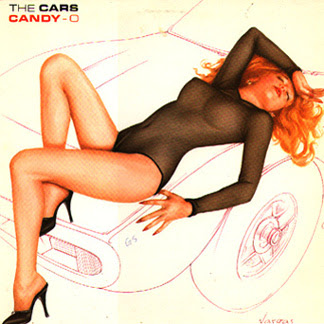Post by Go Jets Go on Sept 26, 2008 15:55:30 GMT -5
wireless.mymanitoba.com/story.php?mtd=story&sid=737
Was Gretzky right?
By: J. Loewen
As far as royalty goes in this country, no one is more regal or commands more attention than Wayne Gretzky.
So when he goes on the record to say the NHL will not return to Winnipeg because the corporate side of the game has made such a move untenable, it stings. Not only was he the Great One on the ice, but through all his corporate dealings and all the different companies he is a part of, he’s pretty much the Great One off the ice as well.
Let’s put it this way: he knows his way around a boardroom.
Gretzky’s comments caused a bit of a stir locally, but they really shouldn’t have. He said the fans in Winnipeg deserve to have an NHL team but that he doubted the corporate environment was such that an NHL team would be viable in Manitoba.
Think about it. When the Jets left for the Arizona desert the team payroll was something like $17 million with the Filmon government covering any losses. Even with that kind of a sweetheart deal the team still couldn’t survive.
Fast-forward to 2008 and the financial requirements to host a team are enormous. There was some hope that after the lockout things would be different. If the fundamental economics game had changed, then there would have been a chance.
But all the lockout did was force bottom-tier teams to drastically increase their payrolls. The salary cap may have forced the New York Rangers and Detroit Red Wings of the world to pay less in salary but it also forced the Edmonton Oilers of the league to dramatically increase the amount they spend on players. Before the lockout some bottom-tier teams could get away with spending $22-$29 million a year. Post-lockout, virtually all of the small market teams have team payrolls that are approaching $50 million a season.
That’s right; after the lockout small-market teams are paying substantially more in team salary than they were before the lockout. Had that been reversed – like many were hoping would happen during the lockout – then there was a chance it would be economically viable to bring a team back to Winnipeg.
But as small-market salaries continue to soar, the Great One hit it on the head: given this new corporate environment in the league it will be difficult for the NHL to return.
Basically the only way that will happen is if an owner who is currently losing lots of money in a market where there is no interest decides he wants to lose less of his money in a small market where he will be a hero and the team will be the talk of the town.
Was Gretzky right?
By: J. Loewen
As far as royalty goes in this country, no one is more regal or commands more attention than Wayne Gretzky.
So when he goes on the record to say the NHL will not return to Winnipeg because the corporate side of the game has made such a move untenable, it stings. Not only was he the Great One on the ice, but through all his corporate dealings and all the different companies he is a part of, he’s pretty much the Great One off the ice as well.
Let’s put it this way: he knows his way around a boardroom.
Gretzky’s comments caused a bit of a stir locally, but they really shouldn’t have. He said the fans in Winnipeg deserve to have an NHL team but that he doubted the corporate environment was such that an NHL team would be viable in Manitoba.
Think about it. When the Jets left for the Arizona desert the team payroll was something like $17 million with the Filmon government covering any losses. Even with that kind of a sweetheart deal the team still couldn’t survive.
Fast-forward to 2008 and the financial requirements to host a team are enormous. There was some hope that after the lockout things would be different. If the fundamental economics game had changed, then there would have been a chance.
But all the lockout did was force bottom-tier teams to drastically increase their payrolls. The salary cap may have forced the New York Rangers and Detroit Red Wings of the world to pay less in salary but it also forced the Edmonton Oilers of the league to dramatically increase the amount they spend on players. Before the lockout some bottom-tier teams could get away with spending $22-$29 million a year. Post-lockout, virtually all of the small market teams have team payrolls that are approaching $50 million a season.
That’s right; after the lockout small-market teams are paying substantially more in team salary than they were before the lockout. Had that been reversed – like many were hoping would happen during the lockout – then there was a chance it would be economically viable to bring a team back to Winnipeg.
But as small-market salaries continue to soar, the Great One hit it on the head: given this new corporate environment in the league it will be difficult for the NHL to return.
Basically the only way that will happen is if an owner who is currently losing lots of money in a market where there is no interest decides he wants to lose less of his money in a small market where he will be a hero and the team will be the talk of the town.






